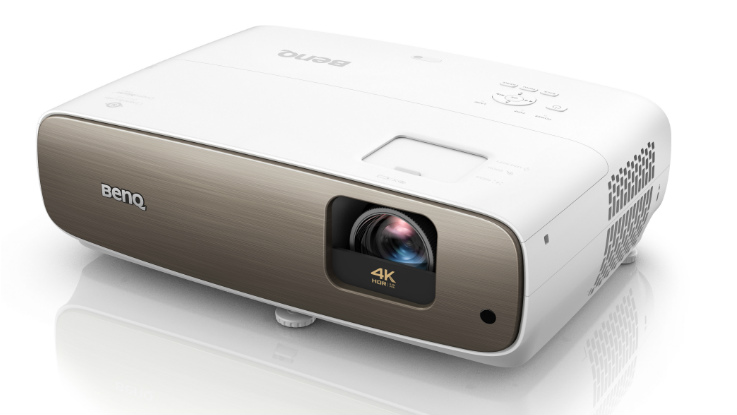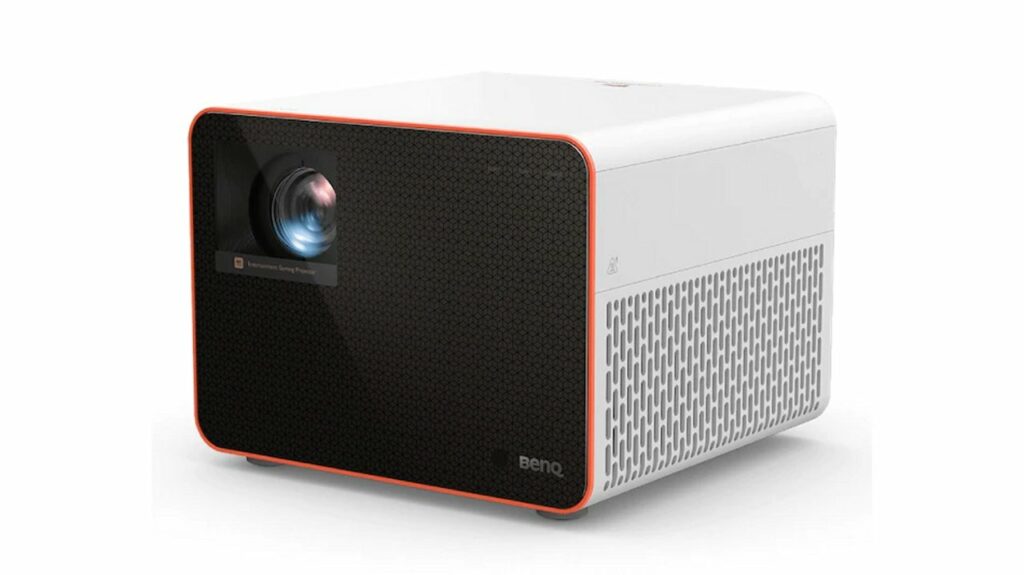BenQ India is ramping up its focus on the booming home entertainment and personal device market, leveraging a growing appetite among younger consumers for portable, projector-based experiences that offer an alternative to traditional TVs and multiplex cinemas.
In an interview with The Mobile Indian, Rajeev Singh, Managing Director of BenQ India, said the company—historically known as a B2B player—has shifted to a balanced 50:50 split between B2B and consumer-facing products since the COVID-19 pandemic.
Targeting the Mobile Generation
“Earlier, we were primarily a B2B company, but since COVID, we’ve made significant strides in the consumer segment,” Singh said. “Now we’re one of the top three monitor brands on Amazon India, and in home projectors, we hold over 45% of the market share.”
BenQ’s dual-pronged consumer strategy includes LCD monitors and home projectors. The company is now expanding aggressively in the portable projector space, targeting India’s youth and tech-savvy households.
“These young consumers live in rented accommodations and want compact, mobile entertainment solutions,” Singh said. “They prefer projectors that are plug-and-play, with built-in Google TV and wireless casting—essentially like a large-screen smart TV, but portable.”

Affordable BenQ Projector Coming Soon
BenQ is preparing to launch a more affordable range of portable projectors under ₹30,000 by the end of 2025. Its current offerings start at ₹50,000, but Singh said lower-tier models will not compete with unbranded Chinese imports, which he calls “very low-end” and aimed at a different market.
“We are not looking at the ₹10,000 range products. Those require completely dark rooms to function. Our projectors work even with lights on,” Singh added.
BenQ is preparing to launch a more affordable range of portable projectors under ₹30,000 by the end of 2025
Education Still Key, But OTT and IPL Fuel Demand
The company has also made significant inroads into India’s education sector. BenQ now operates smart classroom solutions in more than 350,000 classrooms across India, including large installations in Kerala, Uttar Pradesh, Telangana, and Rajasthan.
BenQ sees growing traction in its high-end projectors—such as 4K models priced around ₹2.5 lakh—and attributes this in part to India’s shifting entertainment habits, where OTT content has largely replaced cinema visits. “Many films now skip theatrical release. With good hardware at home, people prefer staying in,” Singh noted.
Audio-visual integration is a key differentiator. “We work with home AV integrators who provide complete smart solutions—audio, video, networking—using the best brands across categories,” Singh said. “That’s how we replicate the multiplex experience at home.”
The home projector market in India currently comprises around 20,000 units annually, split equally between 4K and portable projectors, according to Singh. Both categories are growing at over 25–30% annually, and BenQ expects the market to double in the next three years.
Despite competition from Chinese imports and unorganised players on platforms like Flipkart and Amazon, Singh says these do not impact BenQ’s customer base, which ranges from HNIs to young professionals.
BenQ also touts health benefits: projectors emit reflected light rather than direct light, making them safer for children’s eyes than phones or tablets. “This is why many young parents are opting for projectors as a primary device for their kids’ content,” Singh said.
Manufacturing-wise, BenQ India has started local production of projectors and interactive flat panels through contract manufacturing firm Elin Electronics. However, Singh noted that 80% of components are still imported due to a lack of a domestic ecosystem for high-tech parts like cipsets and lenses.
While India’s Production Linked Incentive (PLI) schemes have spurred mobile manufacturing, Singh said similar support is lacking for AV and display hardware. “We expect localisation to improve over time, but right now it’s still limited,” he said.

Number Game
BenQ India’s annual turnover stands at around ₹750 crore, with projectors contributing ₹200 crore. The overall projector market in India is estimated at ₹800–900 crore.
In 2025, BenQ plans to double both its consumer product launches and marketing budget. “This year, we’ve already launched five new projectors and plan to launch five more. On the monitor side, we’ll release around 20 models—double last year,” Singh said.
To deepen consumer engagement, BenQ is investing in a network of 500+ demo showrooms run by AV integrators. “These setups give customers the experience of a real home entertainment system before they buy,” he said.
With the projector becoming a lifestyle choice, Singh sees a clear future: “For education, interactive panels are taking over. But for home use, projectors are the future of big-screen entertainment.”


